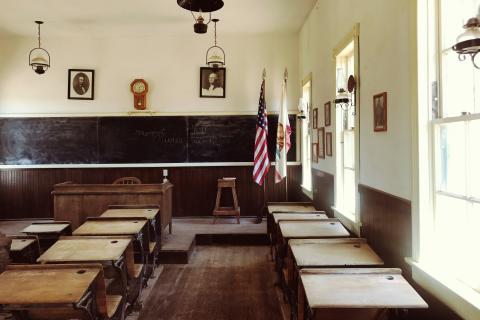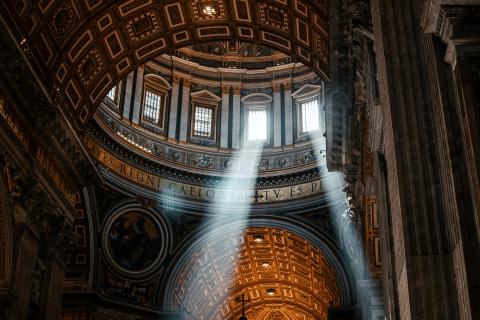
Alasdair MacIntyre died last week – the prolific, provocative philosopher known for revolutionizing the world of moral philosophy by reinstating Aristotelian virtue ethics as a serious alternative to modern ethical frameworks.
His work came on the scene when Kantian duty-based ethics and utilitarian consequentialist ethics were the rule of the day. Recognizing that human beings are more than such philosophies made them out to be – more than calculating, equation punching bundles of molecules and atoms – MacIntyre wrote and taught from a perspective that took seriously man’s quest for a deeper sense of meaning in life: “I can only answer the question, ‘What am I to do?’” he wrote, “if I can answer the prior question, ‘Of what story or stories do I find myself a part?’”
His work has been somewhat prescient as well as provocative. Lots of news stories in recent years have highlighted young people’s renewed interest in more traditional or orthodox values systems, and especially their increased pull toward religion. City Journal has published the latest of such reports, noting that the share of Americans who identify as Christian seems largely to have stabilized, thanks to twentysomethings’ growing return to faith. And in Montana, governor Greg Gianforte recently signed a watershed law guaranteeing children across the state access to religious education – a mandate that goes well beyond legislation in other states to ensure that young people have access to the great stories of religion in human history.
So while the world of high intellectualism, and our culture at large, has tended to view religion as something we’ve at last grown out of, these small cultural rumblings, and MacIntyre’s extraordinary way of naming their intellectual trappings, are yet another sign that such a view of religious life and thought is pretty well off-base. MacIntyre had warned against the danger of supposing that history should “culminate with us,” that it’s “a set of materials for self-congratulation” around how far we’ve come, morally or intellectually. We’re starting to take seriously the reality that religion is in our bones, and that the stories and thought systems we’ve tried to shed perhaps haven’t made us into the people or culture we’d wanted to be.
“It’s too soon to say whether Christianity’s long decline in America has bottomed out, or if a genuine revival is taking shape,” the City Journal noted. But whether it’s with philosophers or “twentysomethings” or governors caring for the minds of young children, something seems to be resonating in our culture. We seem to be starting to admit that a personal and social life freed from God doesn’t make for the high, noble, adventurous life we know we wanted. Instead, it appears the search for a narrative worth being part of just may be the search worthy of our greatest intellectual and personal efforts.
Pope Leo XIII – whose legacy has taken center stage in recent weeks – reminded Christians that we're called to live lives of generous, simple, holy poverty. But how?
Pope Leo XIV – a man who was unknown to much of the world until his recent election – has been profiled in EWTN's "Leo XIV: Portrait of the First American Pope," offering a glimpse into the life and ministry of the new Holy Father. In the meantime, Leo has taken to speaking hard truths directly, one journalist notes.
Over a decade ago, Pope Benedict XVI cautioned than when technological progress becomes detached from inquiry into meaning and values, we're swimming in dangerous waters. With that in mind, one author proposes the question: What is the purpose of AI? Does that purpose align with true human dignity and flourishing?


